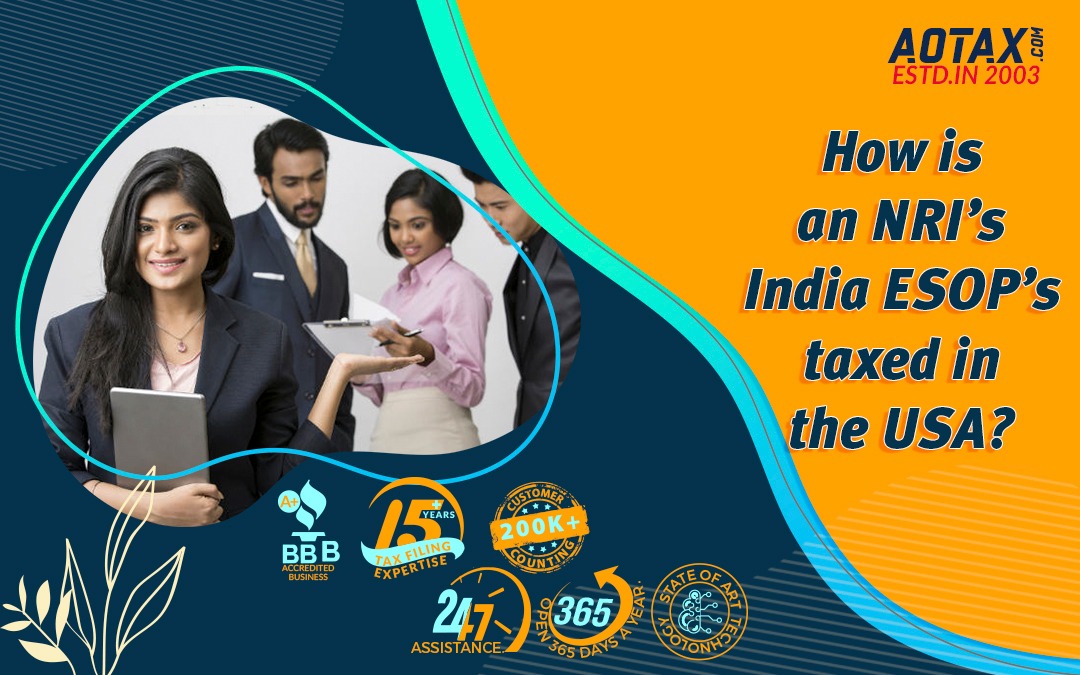How is an NRI’s India ESOP’s taxed in the USA?
NRIs India ESOP’s or Employee Stock Option Plans have always been quite popular. Since you work for an organization, you would know the in and out of it. And the ESOP programs let you benefit from the same. You can own your company shares without even any upfront costs, depending on the agreement between you and your employer. However, as is the case with any source of income, ESOP’s are also taxable.
If you are an NRI staying in the United States of America, you need to be aware of the different taxation for your ESOPs. Primarily you are liable to pay taxes on ESOP’s either while exercising the facilities or while selling them. Here is all that you need to be aware of.
While Buying ESOPs
Under most circumstances, when a person exercises his/her ESOP option, theprice of the same is at a discount than the market price. Let us consider the following example. Keerthi had been working for a firm for a few years and got an opportunity in the US branch. When she exercised her ESOP’s, she had to pay INR 200 per share for 100 shares. Let us assume that the market price of the stock for that day was INR 300. Thus, Keerthi needs to pay taxes for the additional INR 100 for her 100 stocks, which is INR 10,000. Given her tax bracket, she will have to pay taxes accordingly.
However, after moving to the USA, she must declare this income in her tax filing. She must now add the prerequisite value of INR 10,000 to her global income after conversion. This must be disclosed as other income in Form 1040. Since she has already paid taxes in India, she can file for a tax credit for INR 10,000 after the conversion to USD.
One must be careful with the amount that they are claiming for tax credits. It cannot be, at any point in time, more than the tax that a person has to pay on their Indian income in the United States of America.
While Selling ESOPs
Selling of ESOPs is relatively easier to understand if you are familiar with the capital market. As is the case with buying or selling of any other stocks, ESOPs come under the purview of capital gain taxation. Let us assume Keerthi wishes to sell the 100 stocks and the current market value of the same is INR 500. As per the capital gain taxation system, if you sell any stocks at a price higher than the purchase price, you have made a profit and thus the taxes. She must pay taxes on the gain per share (INR 500 – INR200). However, she has already paid taxes based on the market price of the stock earlier. Thus, she must now pay only taxes only on INR 200 (INR 500 – INR 300) per share.
Depending on the duration for which a person holds the stocks, they will have to either pay short term capital gain taxes or long term capital gain taxes. If Keerthi decides to sell her stocks within a year of purchase, she will have to pay taxes at 15% of the gains made. Similarly, for stocks held for more than a year, she must pay 10% of the gains, if it exceeds INR 1,00,000.
The capital gain taxation remains similar in the US as well. Thus, for the taxes paid in India, you can seek tax credits.
While ESOP is a good benefit to have, being aware of the applicable taxes can make things much easier for you.


Recent Comments